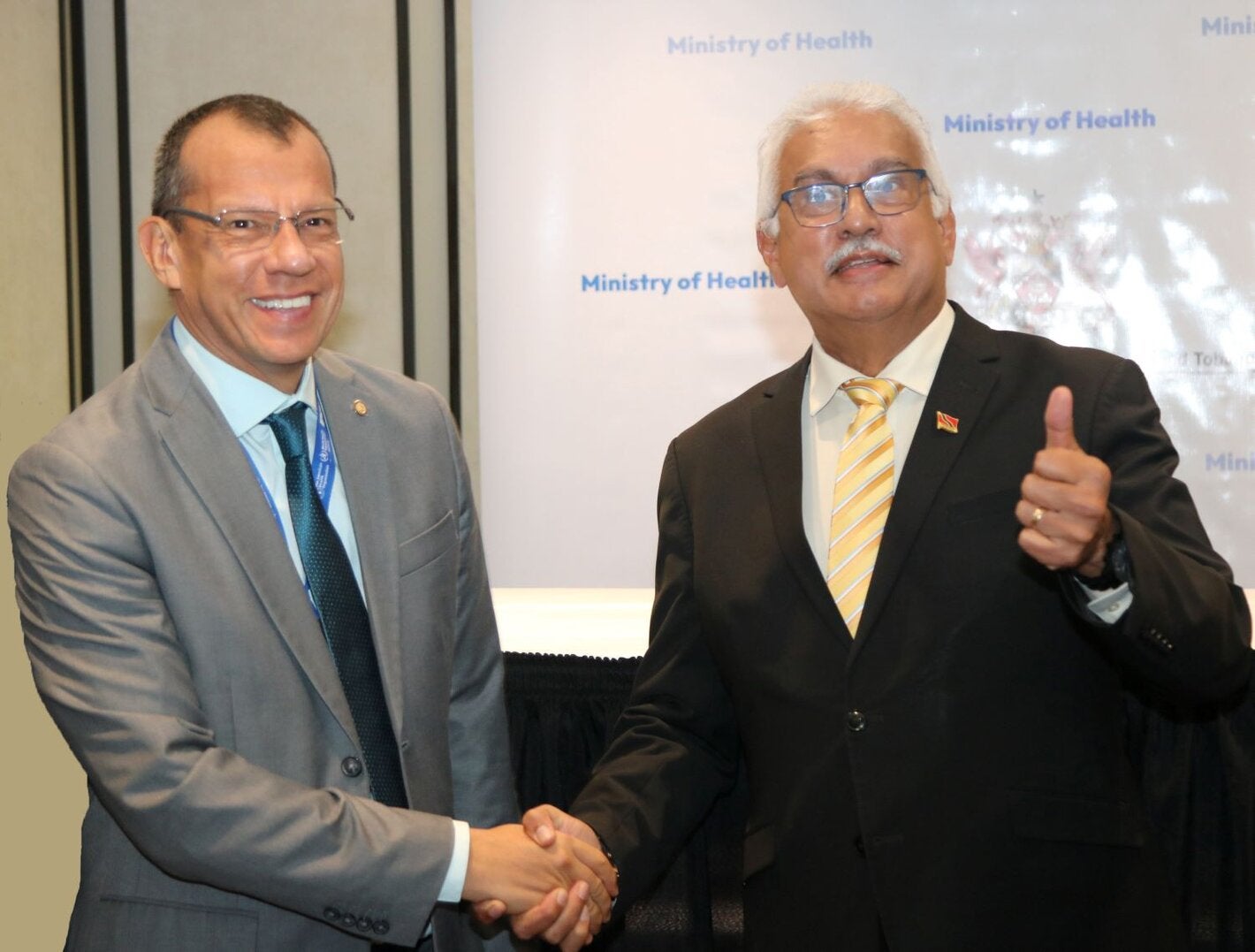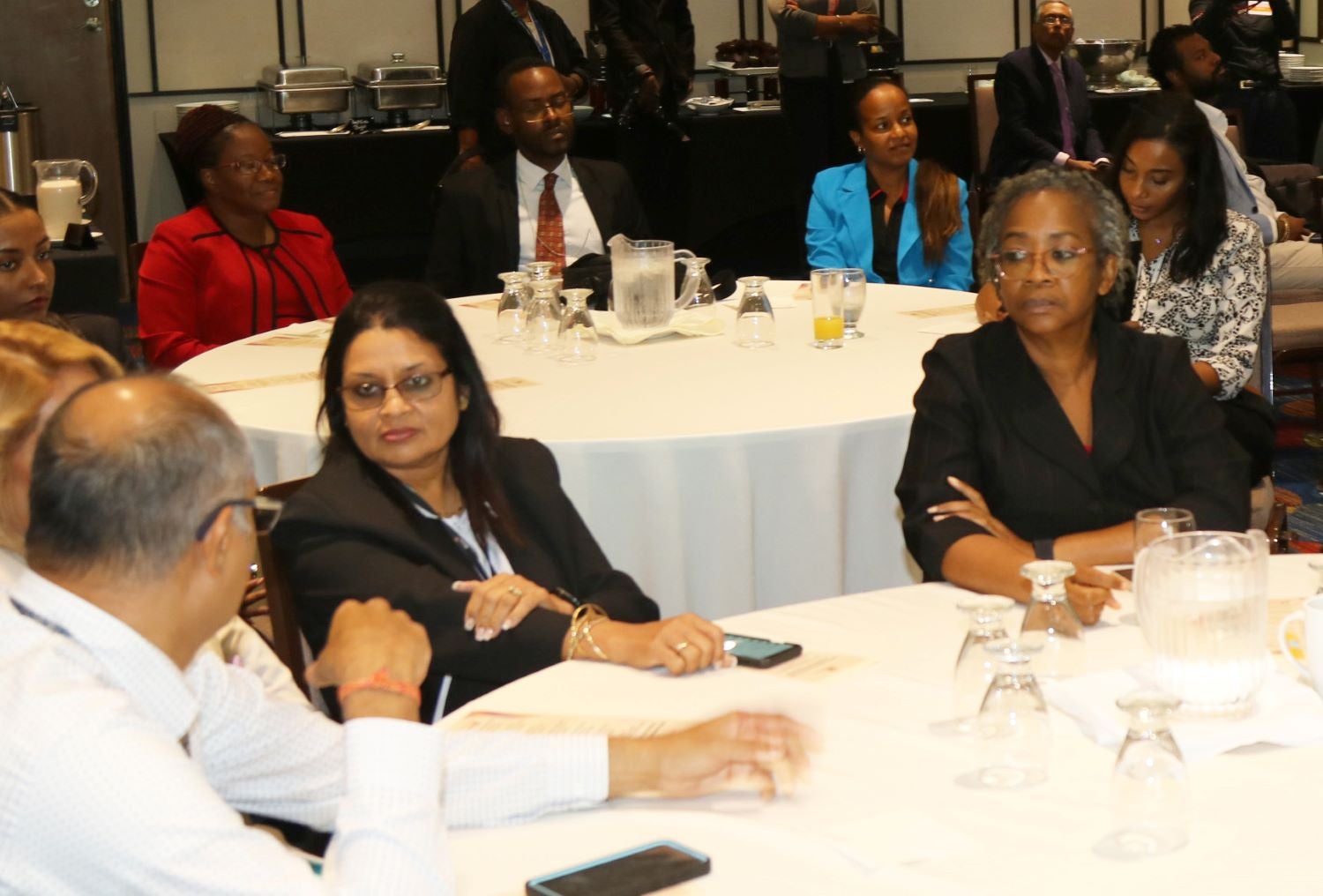
(from L to R) Dr Gabriel Vivas Francesconi, PAHO/WHO Representative for Trinidad and Tobago, and the Dutch Caribbean Islands warmly greets the Honorable Terrence Deyalsingh, Minister of Health for Trinidad and Tobago at the NCD Primary Care Symposia – Master Trainers’ Session.
Port of Spain, 11 June 2024 - Dr Gabriel Vivas Francesconi, PAHO/WHO Representative for Trinidad and Tobago, Aruba, Curacao, Sint Maarten, Bonaire, St Eustatius and Saba delivered an address on behalf of Dr Jarbas Barbosa, Director of the Pan American Health Organization / World Health Organization (PAHO/WHO) at the Non-Communicable Diseases (NCDs) Primary Care Symposia – Master Trainers’ Session which was hosted by the Ministry of Health and the Trinidad and Tobago Medical Association.
Dr Vivas emphasized the importance of primary care as the cornerstone for combating NCDs. Furthermore, he underscored the role of primary care health workers in NCD management and in achieving the overarching goal of enhancing public health outcomes in the Caribbean region.
Dr Vivas also placed a spotlight on the pivotal work undertaken by PAHO/WHO in support of the thrust to reduce the prevalence of NCDs in Trinidad and Tobago, including the implementation of the PAHO/WHO HEARTS Initiative. This initiative seeks to improve the management of hypertension and the prevention of cardiovascular disease at the primary care level. Today, Trinidad and Tobago has moved from 37% to 48% hypertension control among patients attending the public primary care facilities.
Dr Vivas took the opportunity to express his keen interest in initiating discussions with the Ministry of Health regarding the Better Care for NCDs initiative which was launched by PAHO/WHO Director, Dr Jarbas Barbosa.
The Honorable Terrence Deyalsingh, Minister of Health for Trinidad and Tobago also delivered an insightful Feature Address and thanked the PAHO/WHO team for their ongoing technical support.
Preceding this master trainers’ session were five intensive 5-day training workshops tailored for primary healthcare workers hailing from the five Regional Health Authorities. These workshops served as opportunities for knowledge dissemination, empowering frontline healthcare workers with the requisite skills and insights to tackle the multifaceted challenges posed by NCDs.




